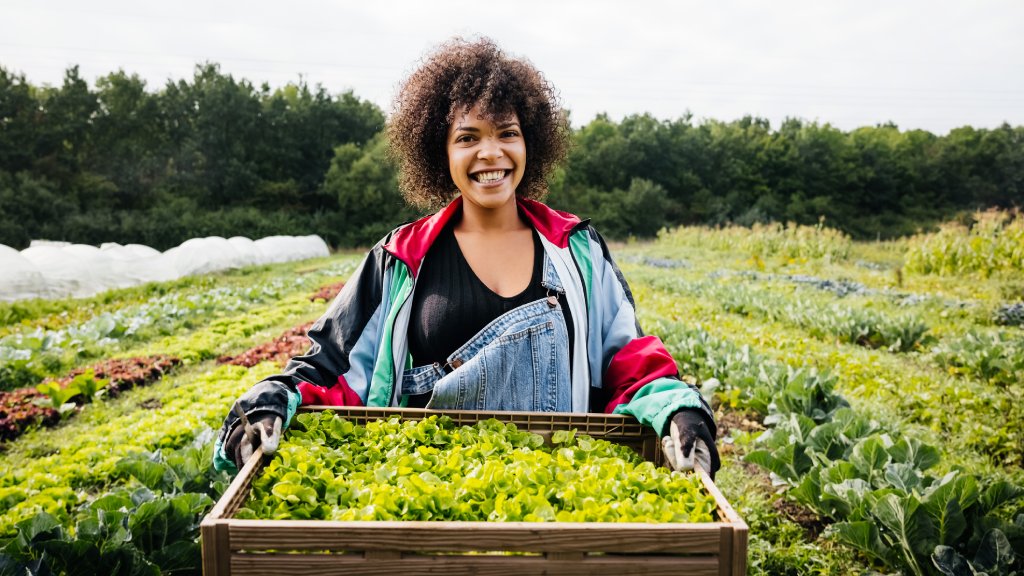Climate Anxiety: What It Is & How To Combat It By Gardening
Climate anxiety is normal these days. The best remedy may be to get outside, start a garden and connect with nature.


Sign up for the Gardening Know How newsletter today and receive a free copy of our e-book "How to Grow Delicious Tomatoes".
You are now subscribed
Your newsletter sign-up was successful
The world is a complex place full of plenty of things to worry about. The state of our climate is one big issue. Such concerns have brought about a condition called climate (or eco) anxiety. Climate anxiety manifests in several ways and can bring about a state of stress and poor mental health. The constant bombardment of news regarding fires, earthquakes, tsunamis, hurricanes, and more natural disasters is fueling this unhealthy trend.
What Is Climate Change Anxiety?
Climate anxiety is a new buzzword but the problem has been around for a long time. Also called eco anxiety or eco grief, it is a psychiatric and emotional disorder. Environmental anxiety probably existed in the Dark Ages as unexplained natural phenomena terrified and devastated early humans. Our species seeks to explain away the unusual or rare through science, religion, and other means of making sense of the senseless. But current disasters seem to be encouraged through our own bad management practices as we poison our Earth. This leads to guilt, frustration, anger, and a sense of futility.
Symptoms of Climate Anxiety
Any doctor will tell you every patient is different. So too, in the case of climate anxiety symptoms. Climate depression is one symptom, similar to clinical depression in its ability to debilitate day-to-day life. Mood, behavior, and even thinking can be affected. Future-casting doom scenarios, intrusive thoughts, rash deeds, and other negative actions feature prominently in someone with environmental anxiety. Physiological symptoms might be insomnia, shortness of breath, racing heart, panic attacks, loss of appetite, and others. Feeling weak and irritable are results of such physical changes.
Effects of Climate Anxiety on Society
Eco grief is a global issue. Almost every civilization has been impacted by the changes to our Earth and the resulting disasters. In the US, over 90 percent of adults reported feeling depressed for several weeks over global warming and resulting natural disasters.
In society, the effect is much like one that occurs during a political race, where 2 sides butt heads. This leaves open dialogue and compromise out of the equation, a situation that is not at all helpful. The side hiding their heads in the sand cannot communicate effectively with the side that is terrified about the end of the world. Such a standoff results in no effective policy change.
Media and Climate Depression
It seems like we can’t turn on the TV or open an internet page without some horror confronting us. Social and traditional media are filled with stories about worldwide natural tragedies. And some of these media and social sites get the facts wrong, compounding an already complex and distressing situation. Finding sources you can trust and doing your homework can help ensure truthful facts. Blindly taking at face value every study or story we read can lead us down a path of unscientific and unproven information. Sometimes the best thing to do is turn off the TV, unplug the computer, and open a book.
How to Deal with Climate Anxiety
Experts suggest going outside as a means to combat climate change fears. Engaging in healthy activities such as hiking, walking, or just feeding the ducks, can promote relaxation and a sense of connectivity to nature. Gardening, volunteering in land restoration, and other preservation activities can foster a sense of connection to the earth. Actively engaging in civic activities such as voting, contacting officials for change, peaceful protest, and more, will develop a feeling of making a difference.
Sign up for the Gardening Know How newsletter today and receive a free copy of our e-book "How to Grow Delicious Tomatoes".
Feeling a lack of control is one of the harbingers of climate anxiety. Taking personal responsibility and developing a lifestyle that reflects one’s values are ways to take back some control. It can be helpful to develop a sense of contributing and to express a personal stance and perspective about issues that are bigger than our individual ability to change them. Gardening and enhancing the natural environment may be the best way to do this.

Bonnie Grant is a professional landscaper with a Certification in Urban Gardening. She has been gardening and writing for 15 years. A former professional chef, she has a passion for edible landscaping.